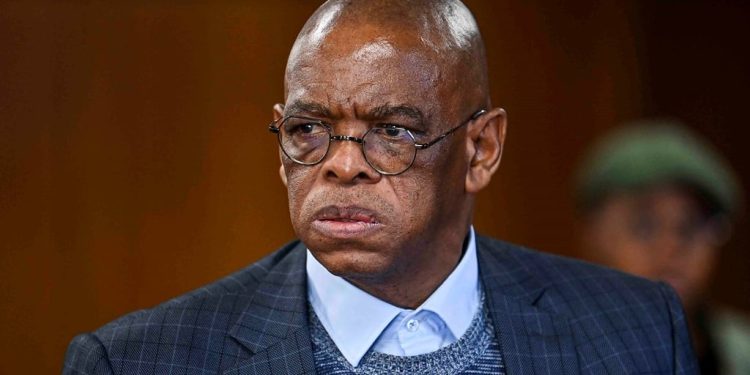Free State Judge President Cagney Musi has firmly rejected the need for external intervention in the asbestos scam trial involving former premier Ace Magashule, asserting that the province’s judiciary is fully capable of delivering impartial justice. His remarks come in response to the State’s controversial request for an outside judge, which has sparked debate over judicial independence and competency.
Addressing the issue, Musi emphasized the integrity of the Free State judiciary. “Our judges are independent and capable of delivering justice impartially, regardless of the individuals involved in a matter,” he stated, defending the province’s ability to handle high-profile and politically sensitive cases.
The trial centers on allegations of corruption, fraud, and money laundering related to a R255 million asbestos eradication contract awarded during Magashule’s tenure as Free State premier. Given Magashule’s political stature as a senior member of the African National Congress (ANC), the case has drawn intense public and media scrutiny.
The State’s request for an external judge has raised concerns about its potential impact on judicial independence. Critics argue that such a move could undermine confidence in the Free State judiciary and perpetuate perceptions of bias or incompetence. Legal analysts have warned that this approach risks sending the wrong message about the judiciary’s ability to adjudicate politically charged cases fairly.
Judge Musi’s stance has garnered support from several legal experts. Constitutional law scholar Prof. Shadrack Gutto remarked, “The judiciary operates on the principle of independence, and there is no evidence suggesting that Free State judges are compromised or incapable of handling this trial.”
Nonetheless, advocates of the State’s request argue that an external judge might be necessary to prevent any perceptions of undue influence, citing Magashule’s former leadership role in the province as a complicating factor.
This procedural debate adds complexity to an already contentious trial, which Magashule has consistently framed as politically motivated. The outcome of these pre-trial arguments could set significant precedents for how South Africa handles cases involving political figures and public trust in judicial impartiality.
Judge President Musi’s resolute defense of his judiciary sends a clear message: “Justice must not only be done but also be seen to be done by those entrusted with the responsibility in the province where the case arises.” As the trial unfolds, this assertion will be put to the test under the watchful eye of the public and legal community.






















